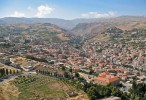The only challenge I would say that we experience is that when it comes down to budgets they are controlled by the hotel, so then it's down to how open-minded the hotel GM is when it comes to where revenue or the expenses need to go.
We're very fortunate; we have a great GM at The Monarch who has a very good vision and who certainly wants to see every aspect of the hotel develop, including the spa.
However, we still struggle with departments like the sales and PR teams who again, like Daniella said, see spa as the nicety. So we've really been on a seven-month training programme trying to educate them that we are here to make money, we can make money and we can make a difference to the hotel as long as you support us. It has been a very slow process and gradually we're changing their way of thinking.

| Advertisement |
What can spa managers do to improve staff recruitment and retention?
Barcock: Finding staff is the biggest headache here. We've got the benefit of having sales and recruitment agencies in Dubai, but the other battle associated with having staff is that you have to pretty much provide everything for them. People are coming for the whole package. It's a very competitive market and people are aware that there are more options for them now.
Antoniouk: There is the mentality that staff coming from Asia is really money oriented. They will leave and move for a higher salary - AED 300 (US $ 82) and they will move.
Russell: We don't always incentivise with money. We try and do other things, like education. A lot of our team members have actually grown all the way through and become very key members of our management team because they're shown their ability.
Grew: We invest a lot of effort into succession planning and always train from the bottom level. Train attendants to be receptionists so it gives them a focus and shows that the steps are always there for them. I think that's more beneficial than letting someone go for AED 300 ($82).
This is even more important now with the new labour laws and visa restrictions - we have to now focus on incentivising and development. It's much cheaper to bring someone in at AED 1000 ($272) or AED 500 ($136) as an attendant and train them to be a therapist, than hire a therapist that would cost you AED 3000-plus ($817) and leave you a year later.
Antoniouk: Of course you're right and succession planning is very important and we also do that - it depends on the person and if they want to grow. There are some people who are therapists and they want to be therapists their whole life.
Russell: Another issue is what peripheries we offer. Is the housing ok? Do they get other benefits? It's becoming so expensive and more difficult for all of us. Where a therapist's money used to be very much their own, now they have to invest more in expenditure and I think that's where they tend to jump.
Sometimes you can give them little extras in terms of privileges of the property because you're right, they will jump for that AED 500 ($136) - if that's what they're losing a month in expenses then maybe it has to be compensated. Either way we still have to give them AED 500 ($136), whether it's in taxi fares or hard cash.
Despite the openness of the UAE's spa managers when discussing operational challenges and opportunities, there was a distinct hush around the table when the issue of benchmarking was broached. At Daniella Russell's own admittance, "no one really wants to share information".
Barcock was in agreement, adding: "Certainly as an industry in Dubai I think people are very secretive about what they're doing and what they're achieving."
Russell did reveal that occupancy was measured by room at Cleopatra's Spa, but with an average taken "because sometimes you've got more rooms than you've got therapists on the day".
"We run between 75% to 77% occupancy in Cleopatra's and I think it varies in the hotels depending on occupancy," she says. "As a day spa we are able to maintain more consistency because we're not driven by the hotel guests, but it doesn't mean it's easy because it isn't - we have to really draw in our regular clients so our occupancy will probably drop down now in the next six to eight weeks."
A key challenge is how to actually measure occupancy and other standards so that spas can be fairly compared, according to the experts.
"There are still variances and there is no set way," says Barcock, with Russell asserting the need for a standard formula.
"It might be three formulas that will tell us the same variances, but we all need to be speaking the same language and that's been a real struggle," she says.









 Search our database of more than 2,700 industry companies
Search our database of more than 2,700 industry companies









